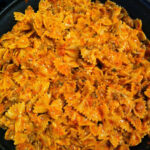Diversity is a cornerstone of a healthy and engaging Magic: The Gathering. For players at every level, from casual Friday Night Magic to competitive tournaments, a variety of viable decks is essential. Imagine a tournament scene dominated by a single deck; it would quickly become stale, forcing players into a monotonous choice: play the dominant deck or a counter-deck specifically designed to beat it. Furthermore, the beauty of Magic lies in its diverse playstyles, and a wide range of deck options ensures more players can find strategies they enjoy, leading to greater participation and a more vibrant community.
To cultivate this crucial diversity and maintain a healthy competitive environment, Magic: The Gathering employs a system of banned and restricted lists. These lists are carefully curated collections of cards that are either completely prohibited or limited in their use within specific formats.
It’s important to understand a couple of key distinctions regarding these lists. Firstly, they are exclusively applied to Constructed formats, such as Standard, Pioneer, Modern, and Legacy, and do not affect Limited formats like Draft or Sealed. Secondly, ban and restricted lists are format-specific. This means a card banned in the Pioneer format, for example, might still be perfectly legal in other formats like Modern or Commander. Therefore, it is crucial for players to always consult the ban list for the particular format they intend to play.
Banned Cards: Out of Bounds
When a card is placed on the banned list for a specific format, it is entirely forbidden from being included in your deck or sideboard for that format. Using a banned card in a sanctioned tournament will render your deck illegal, preventing you from participating.
The decision to ban a card is typically made when it is deemed to have a significantly negative impact on the play environment. This often occurs when a card enables a deck or play style that becomes overwhelmingly dominant, warping the format around its presence. In such situations, the card becomes a must-play for competitive players, or alternatively, they are forced to dedicate their strategies solely to countering it. This creates an unhealthy metagame where diversity is stifled and player choice is limited.
Sometimes, cards are banned simply because they prove to be excessively powerful within a format, even without creating a single dominant deck archetype. Despite rigorous pre-release playtesting, the intricate nature of Magic, with its vast card pool and complex interactions, makes it virtually impossible to foresee every potential interaction between new cards and the existing card base. Certain combinations or card strengths may only become apparent once a set is released and subjected to the scrutiny of the wider player base in real-world competitive play.
An important category of banned cards, applicable across all formats, includes cards whose artwork, text, name, or any combination thereof are deemed racially or culturally offensive. Wizards of the Coast has proactively addressed this issue and maintains a list of these cards, which is continually reviewed and updated. You can find more information regarding this initiative here.
Restricted Cards: Limited Availability
The concept of restricted cards is slightly different from banned cards. If a card is on the restricted list for a chosen format, you are permitted to include it in your deck and sideboard, but with a strict limitation: you can only include a single copy of that card in total.
Currently, the restricted list is exclusively used in the Vintage format. Vintage is unique in its allowance of nearly every Magic card ever printed, leading to an incredibly powerful and diverse, yet potentially unbalanced, environment. The restricted list in Vintage serves as a tool to temper the power level of the most overwhelming cards without completely removing them from the format, preserving some of the unique character of Vintage while promoting a more varied play experience.
In conclusion, ban lists, and in the case of Vintage, restricted lists, are vital mechanisms for ensuring the long-term health and dynamism of Magic: The Gathering. By carefully curating these lists, Wizards of the Coast aims to foster diverse and engaging play environments across all Constructed formats, including popular formats like Pioneer, ensuring a richer and more enjoyable experience for all Magic players.

